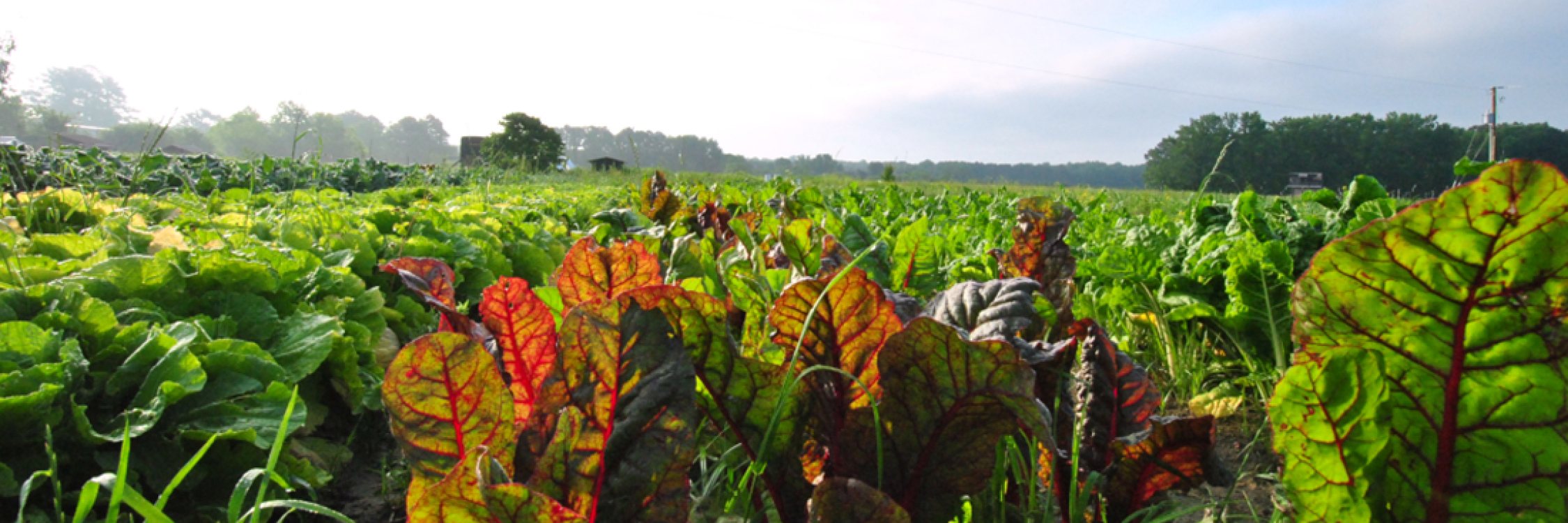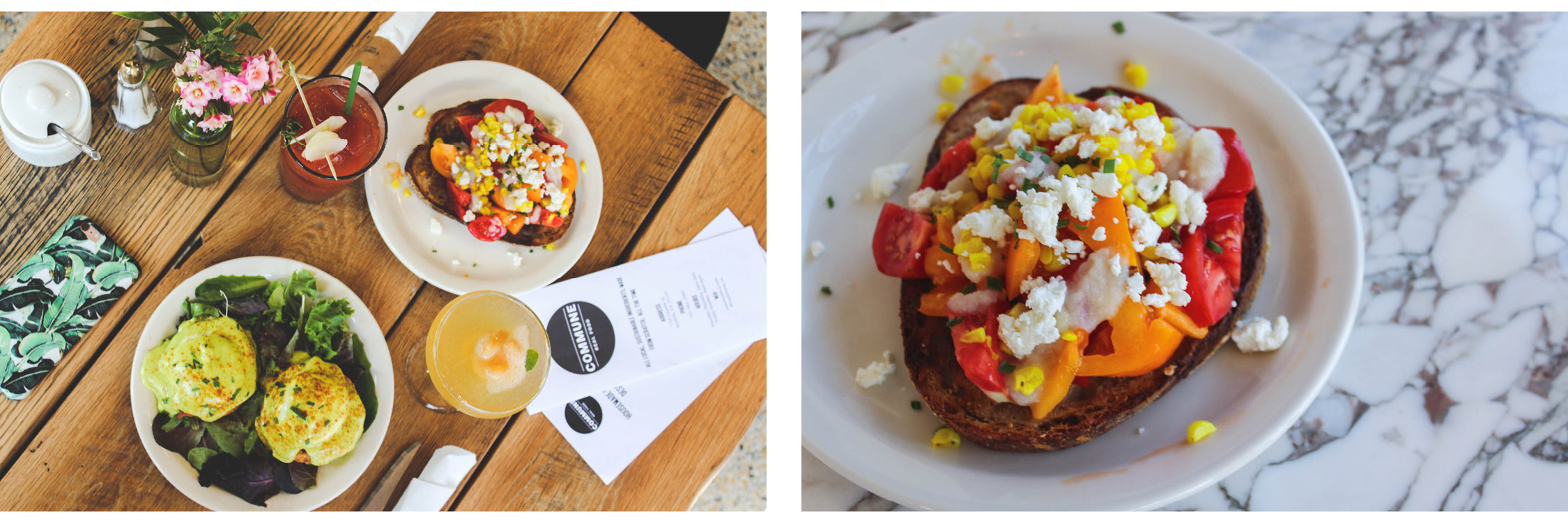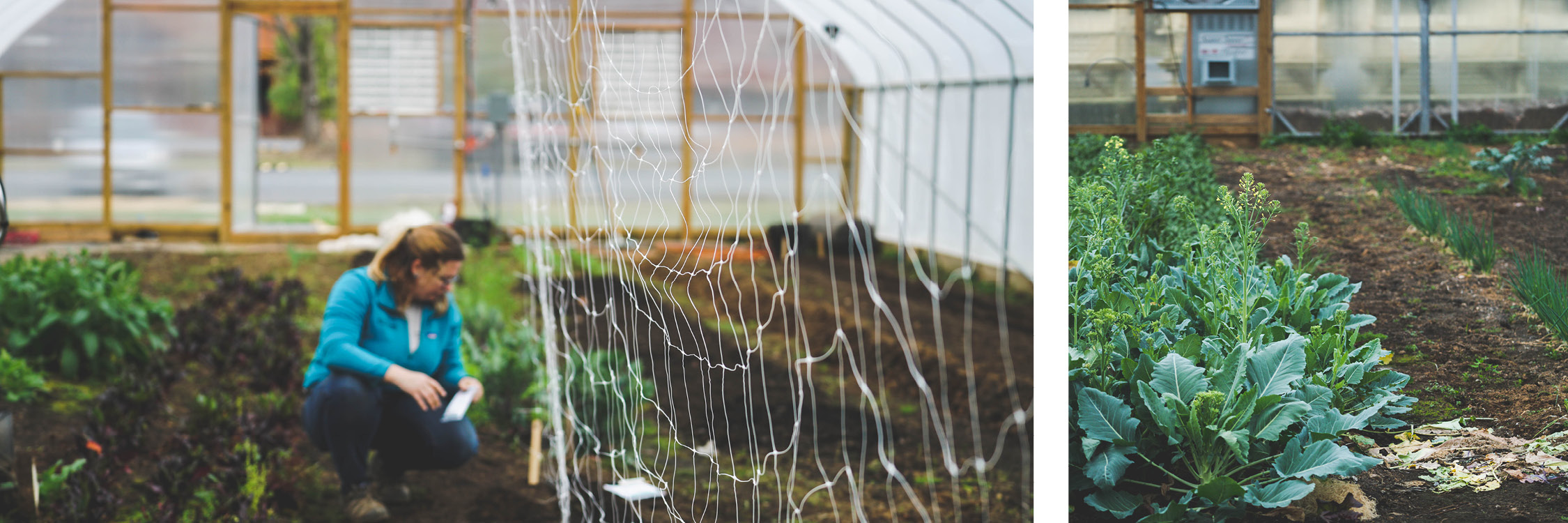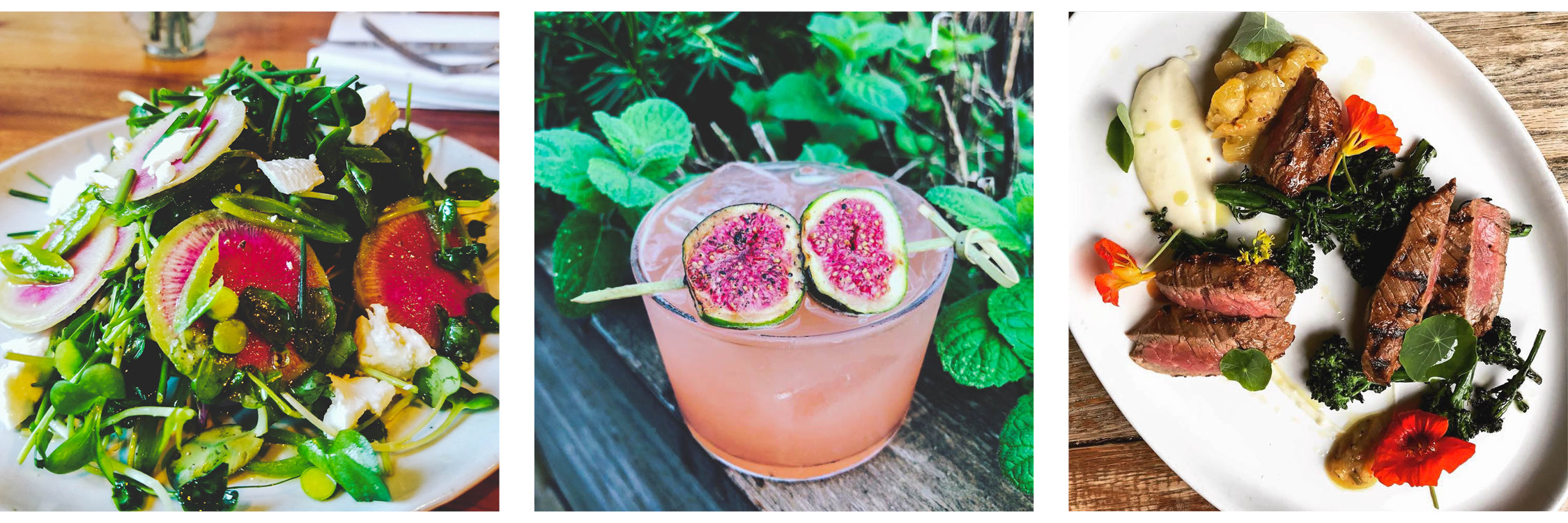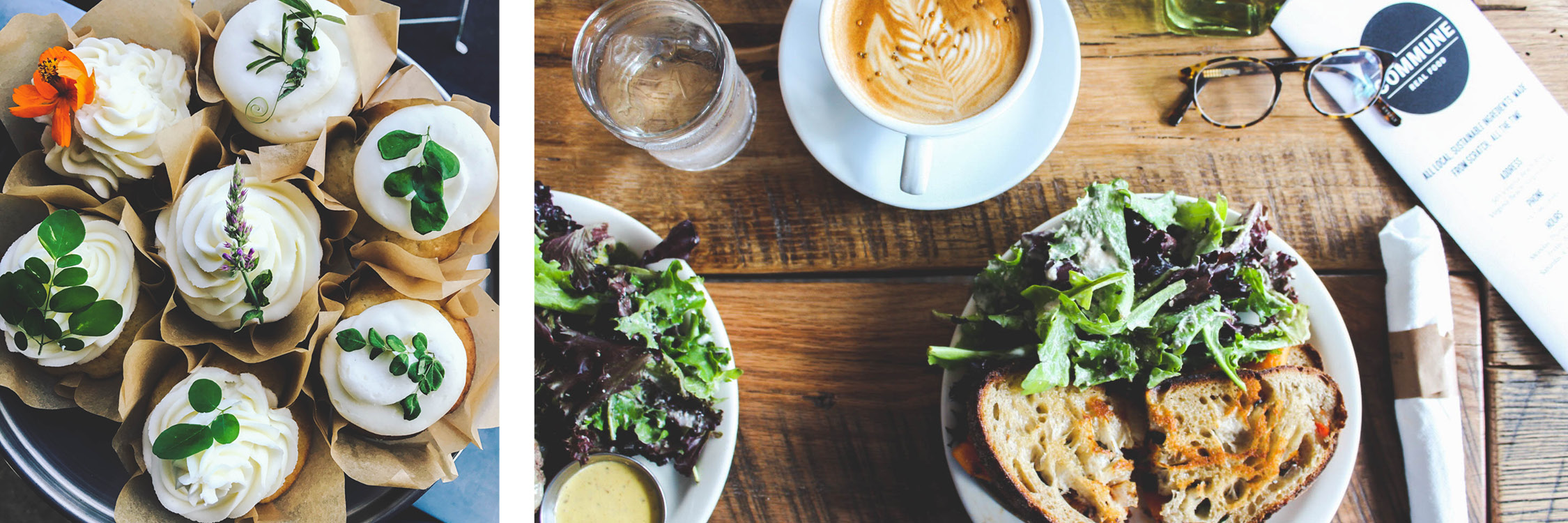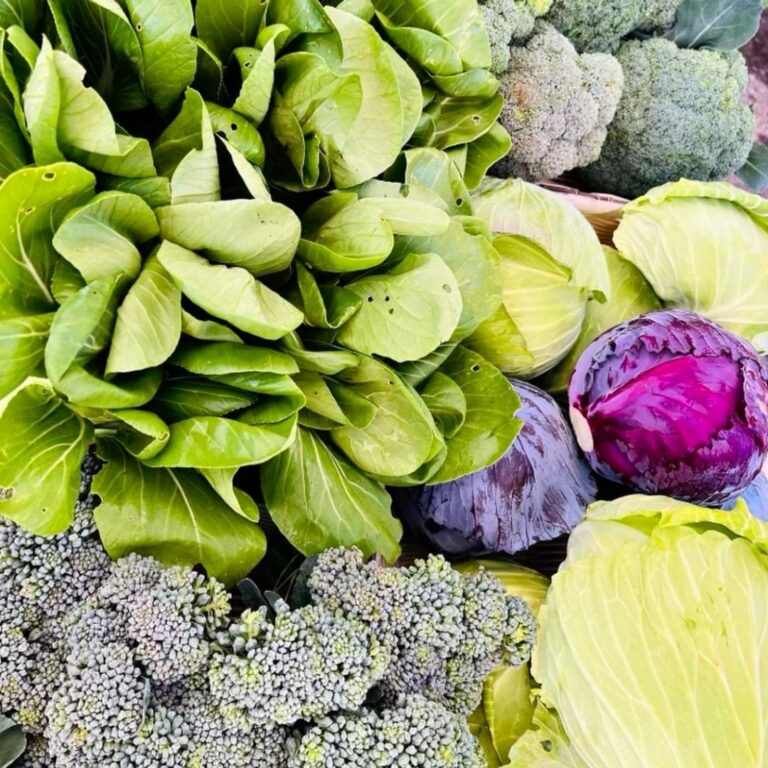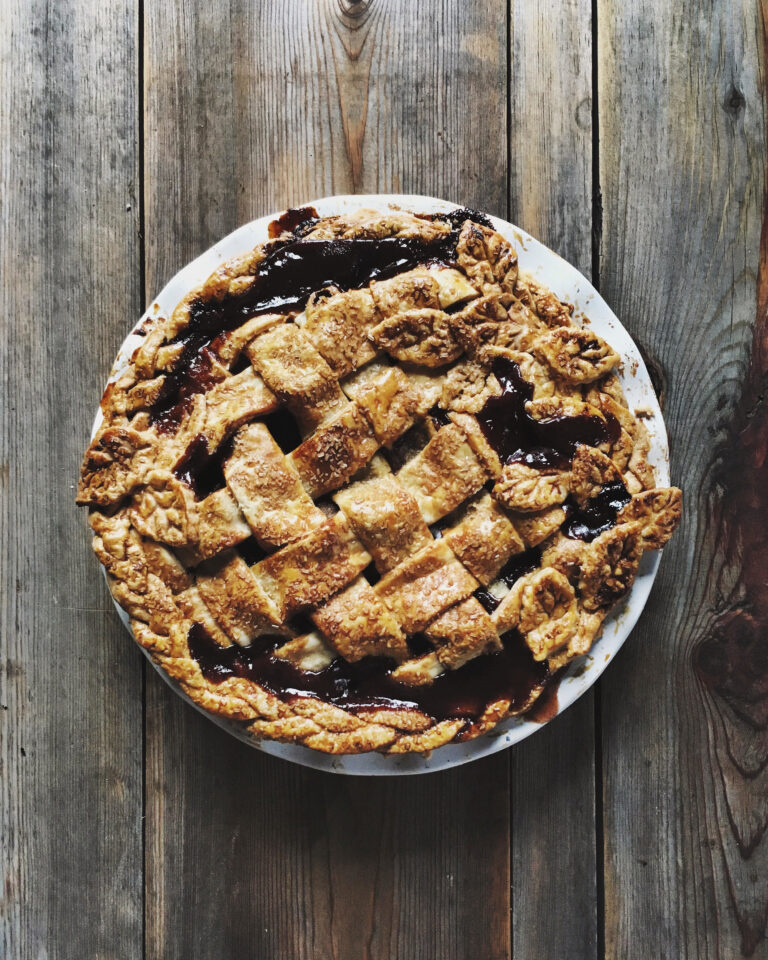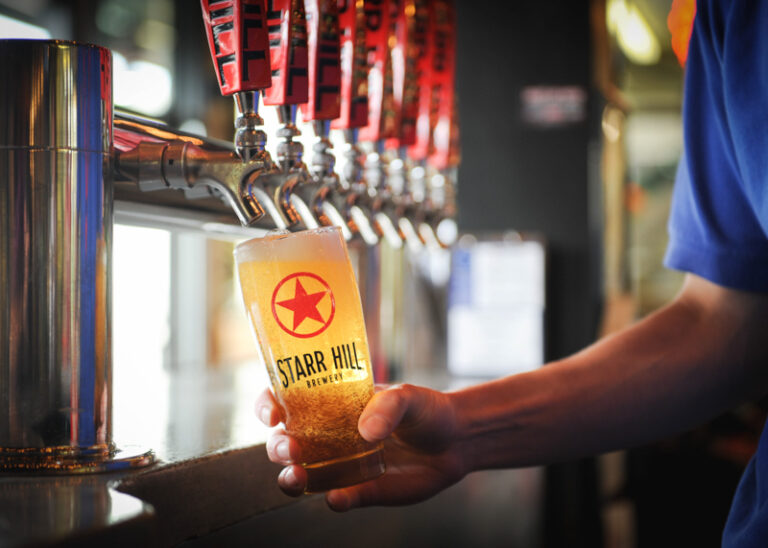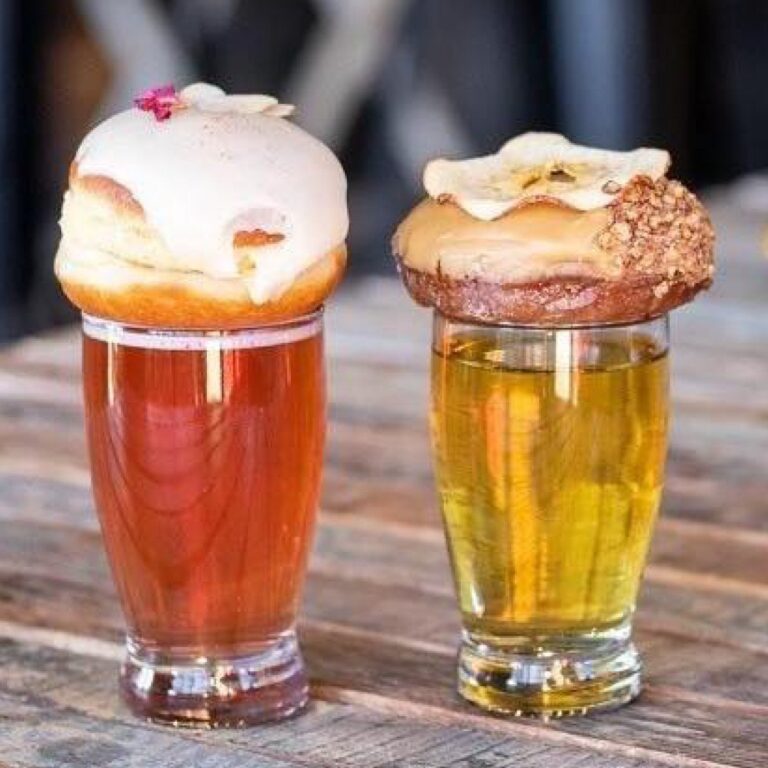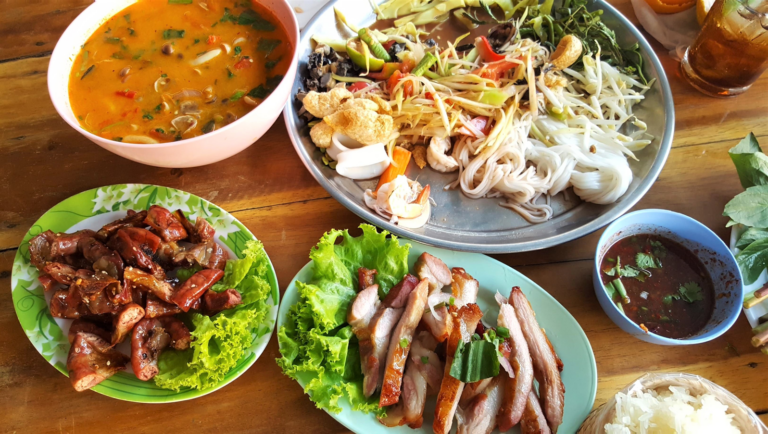Let’s Get Local: A Look Inside the Locavore Movement
Image: New Earth Farm
“Locavore”: a trendy buzzword? One of those food-chain categories you forgot from Ecology 101 – you know, like carnivore, herbivore, omnivore?
No way! A locavore is someone who is beautifully connected to a place and its rhythms—and enjoys the freshest, highest-quality grub imaginable. Eating local in Virginia is both easy and surprisingly satisfying.
Images: Commune
So… What Is a Locavore?
Credit for the coinage of “locavore” goes to chef, writer, and Locavores co-founder Jessica Prentice, who, in 2005, joined forces with Dede Sampson and Sage Van Wing in challenging Bay Area eaters to only consume foods that had been raised or harvested within 100 miles of San Francisco for the month of August. The notion caught on, and soon after the terminology: The Oxford American Dictionary declared locavore the Word of the Year in 2007.
Definitions vary, but most locavores consider their available food-shed to be within a 100-mile radius of their home. Here’s the gist: cutting down on the environmental and nutritional impacts of transporting ingredients long-distance, supporting the local economy, and rebuilding our relationships with local growers, producers, and culinary artisans is better for the environment, your local foodie scene, and your plate!
It can take some research and effort, but eating by locavore standards doesn’t have to be a burden. In Virginia, you’ve got loads of options: buying from local food co-ops and farmers markets, joining a CSA, maintaining your own vegetable garden, foraging and hunting in the countryside—and, of course, dining at restaurants, breweries, and other food establishments that commit themselves to sourcing locally.
Images: Jessica Carter – Devils Backbone Brewing Company
What Is the Locavore Movement?
The locavore movement in Virginia comprises a vast network of farmers, ranchers, foragers, fishers, restaurateurs, distillers, brewers, winemakers, merchants, and—of course—everyday shoppers and diners who share the eating-local aesthetic.
One company at the forefront of the state’s locavore movement is Devils Backbone Brewing Company, which makes a strong effort to use local ingredients in both its beer and the excellent eats available at its Basecamp Brewpub and Meadows. Devils Backbone’s agritourism manager, Jessica Carter, told us co-founders Steve and Heidi Crandall “have always been passionate about local food.”
For the two restaurants it runs at Basecamp (the Brewpub and the Summit), Devils Backbone grows much of its own produce and buys meat, eggs, and other ingredients directly from local producers. “River Oak Farm in Lowesville is where we buy our ground beef for burgers and we buy from Sausage Craft just north of Charlottesville,” Carter said.
Devils Backbone has a variety of seasonal and year-round beers that showcase local ingredients. Two that we are loving right now is the Virginia Farmhouse Ale, which uses Commonwealth hops, and the Lemongrass Wit, which uses lemongrass grown in the greenhouses on the property. The company also just launched a distillery and hopes to start making its gin using the berries of native Virginia red-cedar (aka eastern juniper).
Carter said the company is in the process of establishing a new restaurant at its Lexington production brewery, which will also tap into the bounty from the Devils Backbone gardens and greenhouses.
Images: DC Harvest / Esoteric / The Whiskey Jar
Tips for Becoming a Locavore
If you’ve never given much consideration to the geography of your food before, don’t fret. It’s quite simple (and definitely fulfilling) to ease your way into locavore mode.
Carter emphasizes that being a locavore is really about touching base with the folks actively contributing to your food-shed. “Just get out there and start to build relationships with the people who are growing food in your neighborhood,” she said.
Your local farmers market is a perfect place to start. “Talk to people at the booth,” Carter advises. “And from there, you know, you can start to follow them on social media and start to get a feel for what restaurants are buying from them. When you do this, you can really start to make a point to care about eating local.”
Check out our Virginia Foodie Grow List to track down the farms and farmers markets in your neck of the woods.
Becoming a locavore also means tuning into the seasons: eating what’s fresh and ripe in your area rather than buying locally out-of-season fruits and vegetables that have to be trucked, shipped, or flown in from far away. Becoming a regular at your farmers market definitely cues you into the cycles of the food calendar, and to make it even easier for you, we offer our own Virginia Foodie guide to Virginia’s seasonal goodness.
Images: Commune
Virginia Restaurants That Source Locally
Check out our Dine List to find Virginia restaurants that source at least some of their ingredients locally. To get you started, here’s a lineup of “hyperlocal” eateries around the state that are majorly locavore-friendly:
-
Local Roots – Roanoke
-
Little Saint – Richmond
-
Commune – Virginia Beach
-
Esoteric – Virginia Beach
-
L’Auberge Provencale – Boyce
-
Brassicas – Aldie
-
The Whiskey Jar – Charlottesville
-
DC Harvest – DC
-
Spencer Devon Brewing – Fredericksburg

